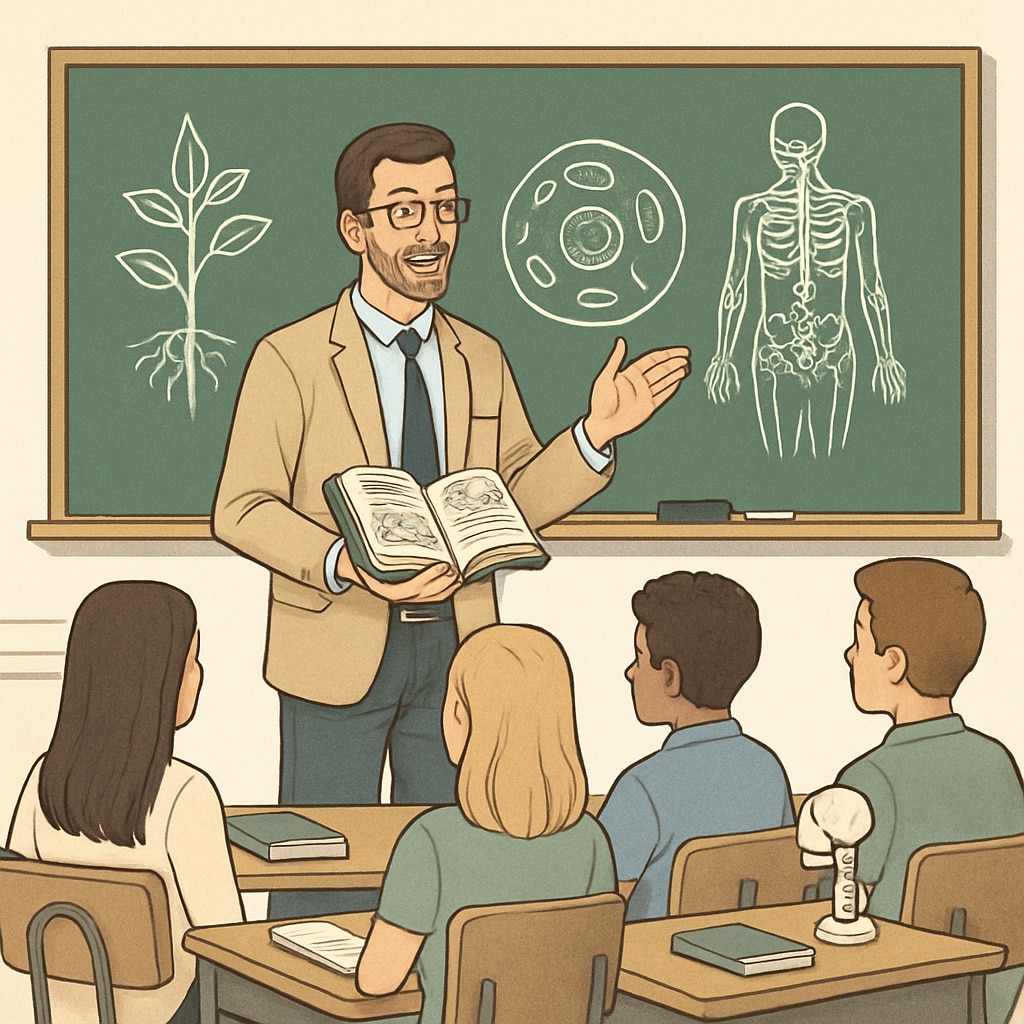The journey from biology to an education master’s program may seem unconventional, but it represents a promising path for those passionate about teaching and shaping young minds. The transition involves leveraging a biology background to thrive in an interdisciplinary teaching environment. In this article, we will explore the feasibility of this academic shift, discuss the challenges and opportunities it presents, and offer practical strategies for biology graduates considering a career in education.
Why Biology Graduates Are Well-Suited for Education
Biology graduates possess a unique skill set that aligns well with the requirements of the education sector. Their background in analytical thinking, problem-solving, and data interpretation equips them to teach scientific concepts effectively. Furthermore, their understanding of biology allows them to contribute to STEM education, an area of growing demand in schools worldwide.
In addition, many biology students develop strong communication and collaboration skills during their undergraduate studies through lab projects and team-based assignments. These abilities are vital for K-12 teaching, where engaging diverse groups of students is key to success.

Challenges in Transitioning to an Education Master’s
Despite their strengths, biology graduates may face several hurdles when transitioning into an education master’s program. One of the primary challenges is adapting to the pedagogical theories and practices that form the foundation of education studies. Unlike the empirical approach of the sciences, education often emphasizes qualitative research and human-centric methodologies.
Another challenge is fulfilling prerequisites for an education master’s program. Some institutions require prior teaching experience or coursework in education, which biology graduates may lack. Additionally, students might need to adjust to the shift in academic focus, which prioritizes communication, psychology, and curriculum design over scientific experimentation.
Opportunities for Growth in K-12 Teaching
For biology graduates, entering the field of education opens doors to a fulfilling career where they can make a tangible impact. Opportunities abound in K-12 teaching, especially in STEM subjects, which are increasingly prioritized by educational institutions. Teachers with expertise in biology can inspire a new generation of scientists, healthcare professionals, and environmentalists.
Moreover, the integration of technology in classrooms has created new avenues for creative teaching methods. Biology graduates can use tools like virtual labs and interactive simulations to make learning more engaging for students. This innovative approach not only enhances student understanding but also sets biology teachers apart in their field.

Practical Strategies for a Successful Transition
To navigate the transition from a biology background to an education master’s program, it is essential to adopt a strategic approach. Here are some actionable steps:
- Gain Relevant Experience: Volunteer as a tutor, participate in science outreach programs, or work as a teacher’s assistant to gain firsthand experience in education.
- Research Programs Thoroughly: Look for education master’s programs that value diverse academic backgrounds and offer pathways for non-education graduates.
- Build a Strong Application: Highlight transferable skills such as communication, problem-solving, and teamwork. Emphasize your passion for education and your commitment to making a difference.
- Seek Mentorship: Connect with professionals who have made similar transitions to learn from their experiences and insights.
- Embrace Lifelong Learning: Be open to learning new pedagogical methods and adapting to the needs of the education field.
Conclusion: Bridging Disciplines with Purpose
Transitioning from biology to an education master’s program is a challenging yet rewarding journey that enables individuals to combine their scientific expertise with a passion for teaching. By addressing the challenges, leveraging opportunities, and strategically preparing for the shift, biology graduates can successfully pave the way for a meaningful career in education. For those who envision inspiring the next generation of learners, this academic transition offers a bridge between disciplines, united by a shared commitment to knowledge and growth.
Readability guidance: The article uses concise paragraphs and actionable lists to ensure clarity. Transition words like “however,” “therefore,” and “for example” are distributed throughout the text to enhance flow. Passive voice is minimized, and sentences are kept concise for better readability.


